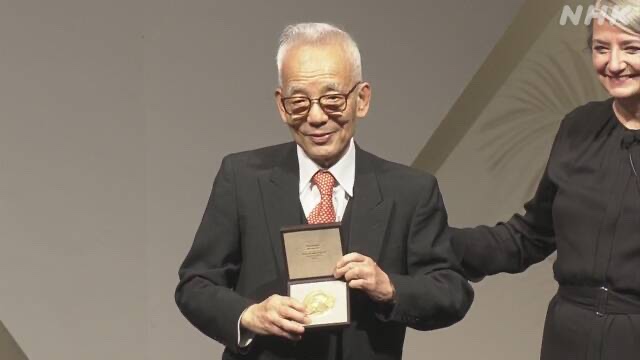
诺贝尔奖:小数字往往会突然宣布:科学计量学
-筑波大学的研究,研究半个世纪的论文-
筑波大学
研究组
1月21日,
诺贝尔奖级的萌芽课题是
不管过去的表现
很明显,小团体倾向于突然宣布。
诺贝尔奖级主题:
在研究组
尤其是在生命科学和医学领域
我们定量分析了“是什么驱动了这个话题”。
话题影响社会:
随着新的研究课题的出现,
该研究课题的发展并对社会产生了技术影响。
过去半个世纪的调查论文:
我们对过去半个世纪发表的所有论文进行了调查。
“与其他主题相比,诺贝尔奖级别的主题往往会有所不同。”
与其他主题不同的倾向:
关于驱动力
对萌芽主题创建前后的五年进行了更详细的分析。
诺贝尔奖级主题:
因此,
对于诺贝尔奖级别的话题,一个很小的群体,
很明显,“有一种强烈的趋势是在没有事先发表的情况下发表论文”。
你可以从这个结果中看到:
创造诺贝尔奖级研究成果
建议“以过去的表现作为评价指标是无效的”。
自 2000 年以来的趋势:
“很少有另一个研究小组进入一个萌芽的话题。”
简而言之,
“同一研究人员继续研究曾经萌芽过的课题的倾向”变得突出。
生命科学和医学:
生命科学和医学领域需要大量资金。
在考虑投资回报时,这项调查的结果非常重要。
这项研究的结果:
20日发表在《科学计量学》杂志网络版。
财经报
https://www.zaikei.co.jp/article/20220123/657068.html
诺贝尔奖得主:只在特定的科学领域
-专注于114个科学领域中的5个-
斯坦福大学:
美国斯坦福大学
他宣布获得诺贝尔奖的研究存在领域偏见。
该研究小组分析了 1995 年至 2017 年间发表的 6300 万篇论文。
通过物理和生物学等各个领域的颜色编码进行映射。
因此
在 114 个科学领域中获奖
“粒子物理学(14%)”
“细胞生物学(12.1%)”
“原子物理学(10.9%)”
“神经病学(10.1%)”
我们专注于“分子化学(5.3%)”。
这些人占诺贝尔奖获得者52.4%的一半以上。
总之,获得诺贝尔奖的研究集中在少数科学学科。
财经报
https://www.zaikei.co.jp/article/20200805/579416.html
诺贝尔奖研究是如何产生的
~ 定量阐明创造萌芽科技的过程~
https://www.tsukuba.ac.jp/journal/images/pdf/191018ohniwa-1.pdf
Generating process of emerging topics in the life sciences
Abstract
Clarifying the mechanism of how emerging topics in science and technology research fields
are generated is useful for both researchers and agencies to identify potential emerging topics of the future.
In the present study,
we use bibliometric analyses targeting data of about 30 million published articles from 1970 to 2017 on PubMed,the largest article database in the life science field, to test our hypothesis that existing emerging topics contribute to the generation of new emerging topics in that field.
We first collected emerging keywords from medical subject headings
attached to each article using our previously reported methodology (Ohniwa et al. in Scientometrics 85(1):111–127, 2010, https://doi.org/10.1007/s11192-010-0252-2),
and performed co-word analyses of each emerging keyword 1-year prior to it becoming an emerging keyword.
About 75% of total emerging keywords, at 1-year prior to becoming identified as emerging,
co-appeared with other emerging keywords in the same article.
Furthermore,
most of the keywords co-appeared again at the point when the target keyword was identified as emerging,which is consistent with our hypothesis regarding the mechanism that emerging topics generate emerging topics.